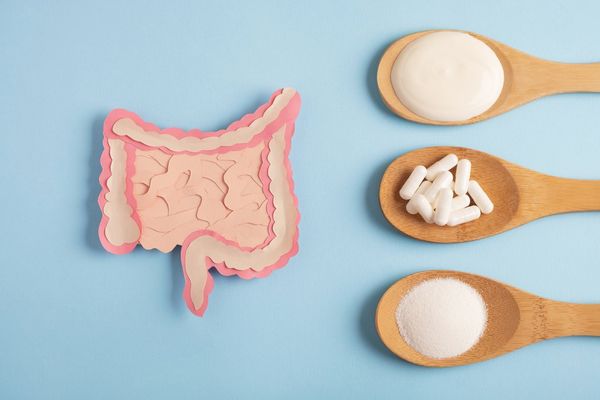IBS is a common medical disorder that is characterized by chronic abdominal discomfort or pain, bloating and changes in bowel habits. The abdominal pain or cramping can be a dull ache but, for some, it can be intolerable and without relief. It can also lead to a tired feeling and even mild depression.
Some people with IBS suffer from constipation, others from diarrhea and some experience bouts of both. Symptoms associated with IBS include bloating, passage of mucus or straining with bowel movements, a sense of incomplete evacuation after bowel movements or a sense of urgency to move the bowels.
If you're experiencing these symptoms regularly, it's time to call your health care professional. If he or she says the problem is "all in your head," or that there's nothing that can be done, get a second opinion. Many women with IBS manage their condition successfully. Look for a health care professional who explains IBS and is interested in helping you identify the triggers for your symptoms.
The causes are not well understood but are likely multiple, including: biological, psychological and social factors. Two common triggers are stress and infection. The former causes gastrointestinal problems because the brain and intestine are linked, sending signals to each other to keep the digestive system working smoothly. Some IBS patients report that their symptoms appear to have originated shortly after a bacterial infection, such as severe gastroenteritis.
Your treatment plan may take into consideration physical triggers as well as psychological and environmental factors. Many people find relief by eating smaller meals, avoiding triggers and consuming more fiber. Discovering an IBS management plan that works for you likely will involve trial and error at first and changes along the way.
IBS may be alleviated sans drugs
If you've been recently diagnosed with IBS, or continue to struggle with gastrointestinal discomfort for prolonged periods of time, consider trying some of these holistic remedies for the condition.
Certain foods may trigger an attack. It is a good idea to keep a journal noting which foods seem to cause distress. To identify foods that trigger your symptoms, maintain your usual diet and note what you were eating when your symptoms developed. Look for patterns. Often, symptoms don't relate to specific foods, rather to large amounts of food at one time. You may want to consult a dietitian to help you identify food triggers and develop your treatment plan. The dietitian may be able to help you assess how your body reacts to certain foods. Sometimes a food sensitivity (such as lactose or gluten intolerance) is involved.
Triggers can include caffeine, milk, chocolate, nicotine, alcohol and large, high-fat meals. Some people with IBS may tolerate these without symptoms.
Traditional therapies have included dietary fiber, especially for treating constipation. Fiber decreases the transit time through the colon and decreases the pressure in the colon. Increasing your consumption of fresh fruits and vegetables, whole grains and bran may help; your health care professional may also suggest a soluble fiber supplement.
Increased fiber can make symptoms worse for some IBS patients. This is because bacteria in the colon can break down fiber, producing gas, which can make bloating worse. Discuss fiber options with your health care professional. You may need to avoid certain forms of fiber, particularly gas-forming foods such as cabbage, broccoli, cauliflower and beans.
Physical activity and hydration also go a long way toward soothing gastrointestinal issues. Both efforts promote good digestion. Additionally, exercise is known to lower stress levels, which can trigger IBS. Other relaxation activities such as meditation and yoga have been found to help with symptoms as well.
Complementary and alternative medicine
The National Institutes of Health reports that complementary and alternative medicine (CAM) is becoming increasingly popular among Americans. A wide array of CAM therapies may be used to treat a number of conditions, including IBS.
The Mayo Clinic reports that some studies have shown that acupuncture may work with some IBS patients. It can reportedly help to relax muscle spasms and promote healthy bowel movement.
Peppermint is thought to significantly alleviate stomach issues, such as nausea or indigestion. Some CAM experts recommend capsules of peppermint oil to treat IBS, but you may also try drinking peppermint tea or even taking minty lozenges.
Many Western physicians and naturopathic doctors alike recommend that patients with IBS take probiotics. This type of beneficial bacterial culture—found in capsules and food products like live-culture yogurt—may be effective at bringing a chaotic gastrointestinal system back into balance.







